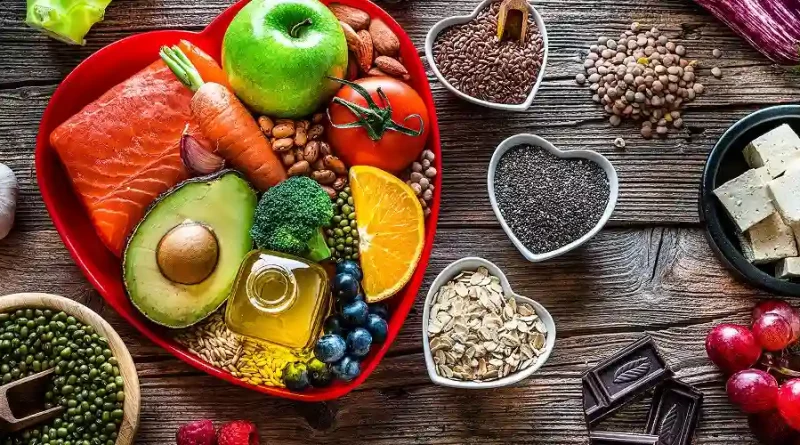How to Incorporate Healthy Eating Into Your Daily Life
With all the conflicting diet and nutrition advice out there, it can be hard to know what to eat. Rather than cutting out foods completely, focus on making healthy choices most of the time.
A well-balanced diet includes a variety of foods from each of the 5 food groups in recommended amounts. Certain foods (먹튀검증) are often high in saturated fat, salt and added sugars, so should be eaten less often.
1. Eat more fruits and vegetables
A diet high in fruits and vegetables helps you maintain a healthy weight, lower your risk of certain diseases and have a better mood.
Make sure that you are getting at least five to nine servings of fruits and vegetables a day. A serving is approximately one cup of vegetables or two cups of fruit.
Try new fruits and vegetables to expand your taste buds. Keep a variety of ready-to-eat washed whole fruits and chopped colorful vegetables in your refrigerator for easy snacks.
2. Eat more whole grains
Eating a healthy diet means eating a variety of foods from all the major food groups. This helps ensure that you are getting the nutrients you need to stay healthy and reduce your risk of disease.
Replace refined grains with whole grain options. Try brown rice pasta, quinoa or barley. Add whole grain bread to your morning routine or make a breakfast wrap with a whole wheat tortilla.
3. Eat more lean meats
Red meat and processed foods often contain saturated fat, which can increase your risk for heart disease. Choose lean cuts of meat and limit or avoid fatty poultry skin.
Find healthier recipes that include fruits, vegetables, whole grains, low-fat or fat-free dairy and fortified soy alternatives. Make healthy choices at every meal and snack.
4. Eat more healthy fats
Healthy fats (monounsaturated and polyunsaturated) help us feel full, add flavor to food, support hormone function and help with absorption of certain nutrients. Try adding olive, canola, safflower or peanut oils and unsalted nuts to your meals and creating homemade salad dressings that contain omega-3.
Aim for 20-35% of your calories to come from fat, focusing on healthy sources. A 2,000 calorie diet would equal about 56 grams of fat a day.
5. Eat less energy drinks
Eating less sugar can help you maintain a healthy weight. Limit your intake of soda, energy drinks, sweetened yogurt and iced tea. Also, choose fewer packaged foods like flavored lattes and cookies.
Read labels and look for added sugars, which are listed in the ingredients in order of descending amount. Sugars can be known by many names including fructose, sucrose, glucose, dextrose and maltose.
6. Eat less processed foods
It’s important to limit processed foods and eat more whole foods. While it may seem daunting to remove all packaged foods from your diet, a gradual process of replacing processed snacks and meals with fresh ingredients is helpful.
Processed foods can be high in sugar, sodium or trans fats and can lead to nutrient deficiencies. Avoiding packaged cookies, chips and soda can make a significant difference in your health.
7. Drink more water
The amount of water you drink each day is important for healthy hydration. Try to get to the recommended number of cups per day, but keep in mind that this is different for everyone.
Try adding lemon, lime, strawberries, kiwis or cucumber to your water for a naturally flavored beverage without added sugars. You can also eat whole pieces of fruit as another way to get fluids.
8. Eat more healthy calorie
Fats may be calorie dense, but they are an essential part of a healthy diet. Choose healthier fats such as olive oil, nuts and seeds, fatty fish and lean meats.
Keep a food diary to become more aware of when you are eating for other reasons than hunger. Make a list of cues that trigger unhealthy choices and replace them with new, healthy habits.
9. Eat more protein
A protein-rich diet can help you build muscle, stay full and reduce hunger. Plus, it’s a great source of gut-loving fiber, vitamins and minerals.
Choose healthy options from each of the 5 food groups, and limit foods high in saturated fat (like fatty meats and whole milk). Try to eat fish at least twice per week. Add nuts to your snacks.
10. Eat less sugar
A moderate intake of naturally occurring sugars in vegetables, fruit and milk is OK, but limit added sugar. This is found in soft drinks, energy and sports drinks, many flavored coffees and teas, candy and chocolate.
Learn to identify hidden sources of sugar in your diet by reading labels. The closer the sugar ingredient is to the beginning of the list, the more added sugar the product contains.




